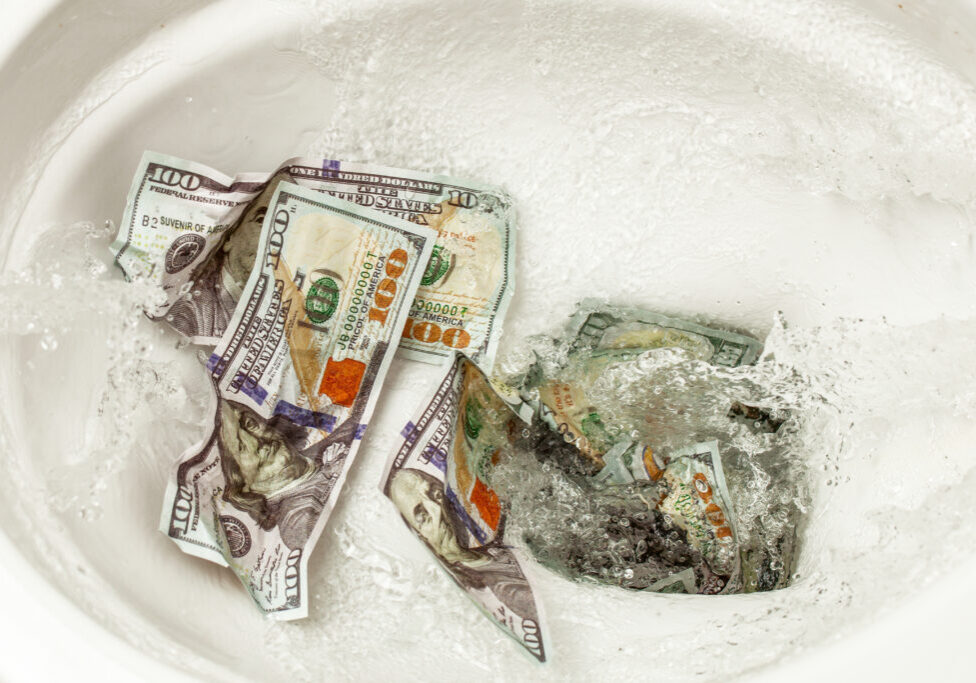Gov. Jeff Landry’s plan to cut taxes for big corporations and wealthy Louisianans would tear a $742 million hole in the state budget by 2026-27, according to the Legislative Fiscal Office. That, in turn, would force the Legislature to make deep cuts to programs and services that support economic growth, such as K-12 education and health care. As Clancy DuBos reports for Gambit Weekly, the tax plan would also make it harder to make good on new spending commitments that lawmakers authorized earlier this year.
Worse yet, the potential budget hole could mushroom in future years. Earlier this year, at Landry’s behest, lawmakers approved education savings accounts (ESAs) and a passel of “anti-crime” legislation. As pressure builds to fully fund ESAs (which cover private school tuition, among other items), and as prisons overflow with people no longer eligible for parole, those changes alone will cost taxpayers hundreds of millions of dollars more a year. Landry’s pitch to broaden the tax base makes sense on paper. But, as always, the devil is in the details.
Commitment to oil and gas is hurting state economy
Louisiana’s commitment to the oil and gas industry is wasting billions of taxpayer dollars and inhibiting efforts for the state to tap into more profitable business sectors and reduce planet-warming fossil fuels and pollution. That’s according to a new report from the Institute for Energy Economics and Financial Analysis. The oil and gas industry accounted for 60% of the state’s total revenue during the 1960s, but that number has shrunk to just 4.5% today. The report’s authors explain how Louisiana leaders are ignoring reality – and hurting the state’s economy – by relying on fossil fuels:
Despite the warning signs, Louisiana’s economic development tools continue to prop up the industry. Recent governmental and industry pronouncements in Louisiana reveal dozens of expansions and new fossil fuel-driven petrochemical investments. IEEFA has found sufficient information to identify 24 companies with new or expanding projects. IEEFA’s list builds upon a list published by the chemical industry. The 24 companies’ investments collectively amount to $82 billion and have benefited from a total of $6.8 billion in tax exemptions. IEEFA’s analysis finds most of these projects are misaligned with markets and risk wasting substantial amounts of taxpayer dollars.
Racial bias at NOPD
The New Orleans Police Department has used internal data to show that it is no longer plagued by racially biased policing and should be allowed to exit a decades-long reform effort imposed by a federal judge. An investigation by Verite News doesn’t support the department’s claims. Michelle Liu reports:
In each year from 2016 through 2023, Black people accounted for more than 80% of uses of force. That disparity grows when focusing on police force incidents where at least one officer used a firearm by either pointing or shooting it, according to the Data Hub’s analysis. Since 2016, nearly 88% of NOPD use of force incidents in which at least one police firearm was used involved Black civilians, compared to about 8% for white civilians. That rate has been nearly consistent every year. The NOPD’s own conflicting analyses, drawn from its own data, appear in reports intended to assess bias in some of the department’s key policing areas.
Access to care is crucial to improving health outcomes
Thanks to the 2016 expansion of Medicaid eligibility, Louisiana’s uninsured rate is now lower than the national average. But the state continues to fare poorly on national health rankings, as good health depends on having access to doctors and hospitals. Heather Langley, writing in a guest column for The Times-Picayune | Baton Rouge Advocate, explains why access to health care is vital to improving health outcomes:
Individuals and families that have reliable access to healthcare are more likely to seek preventative care, follow a treatment plan developed with their doctor, and less likely to experience a serious disease. Access to quality care is also associated with improved development and lower levels of preventable health issues in children, including obesity and mental health disorders. This is another reason why Louisiana’s hospitals and healthcare systems are so foundational to healthy communities. Hospitals are the only facilities to provide medical care 24 hours a day, 365 days a year. Especially in rural parts of our state, this around-the-clock care is necessary.
Number of the Day
12.4% – Percentage point increase in the number of orphaned oil and gas wells in Louisiana from November 2023 through April 2024. Louisiana has received more than $100 million in federal aid to clean up orphaned wells on state lands. A recently passed state law created the Louisiana Natural Resources Trust Authority, and a permanent revenue stream to tackle the problem. (Source: Louisiana Legislative Auditor)
